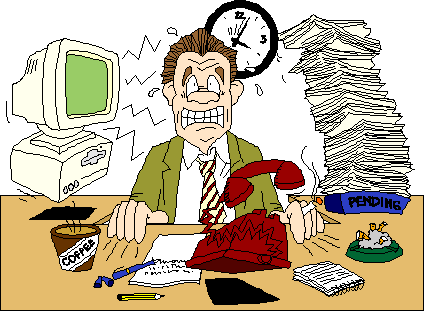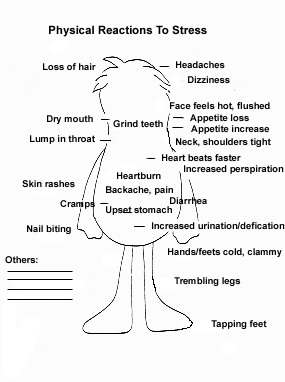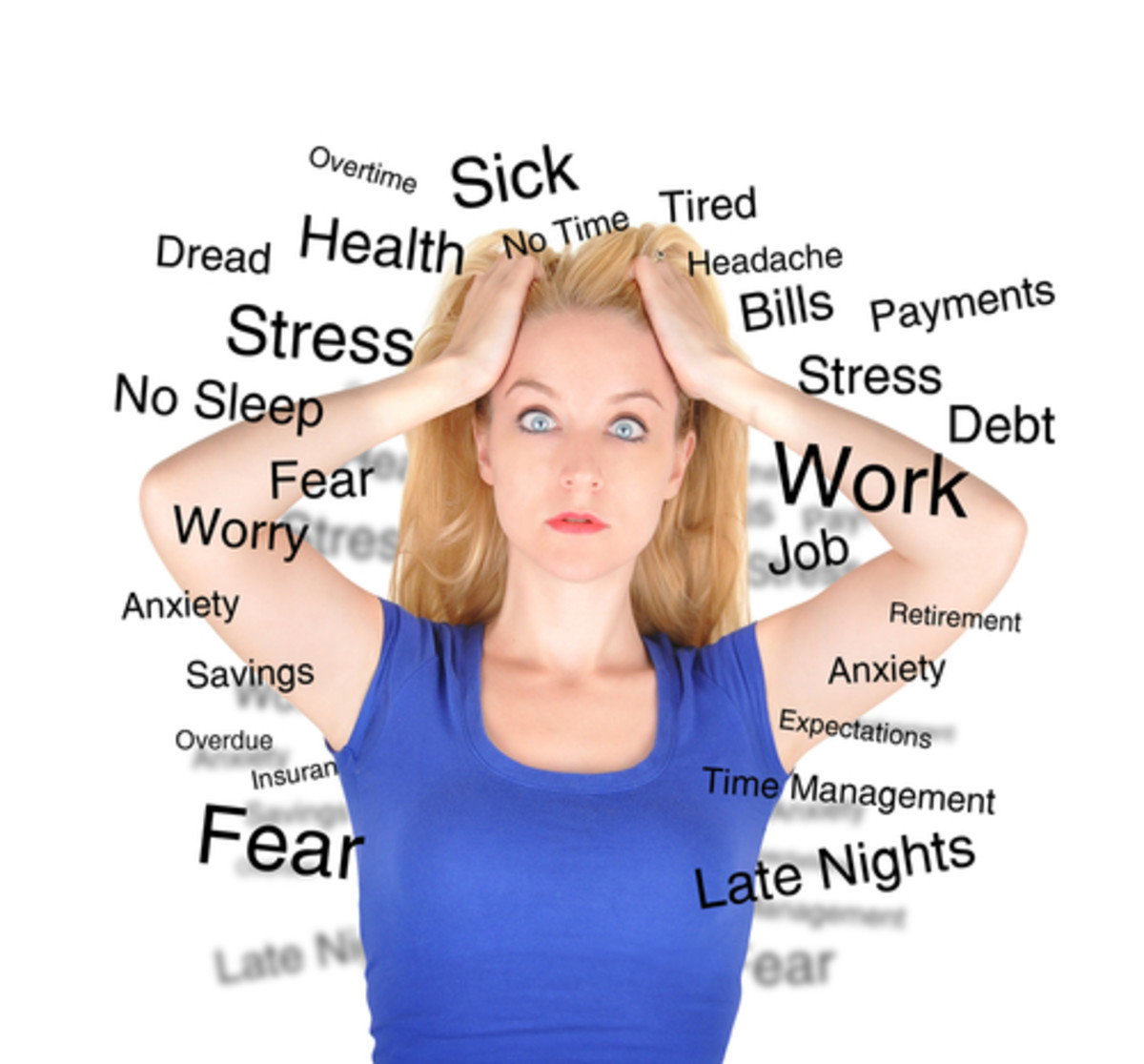- HubPages»
- Health»
- Mental Health»
- Stress Management
The Causes of Stress Overload
What to Do When Feeling Stressed?

Stress Overload Can Happen to Anyone
All around us stress exists. Life is rarely so relaxing, that we can feel pressure free and worry free. The demands we put on ourselves, and others put on us, create feelings that affects us in many situations of our lives.
Stress existed with our ancestors, and will exist with our future generations. It exists across cultures, and people of all ages, gender, religion, and regions of the world. Stress is a universal and timeles feeling.
The good news is, we can all relate to this emotion. The bad news is, that it is a chronic condition, with no cure.
The good news is that we can learn to change our attitude, and our thinking, to modify our behavior, and to utilize tools and techniques that can help us relax. The bad news is, this takes a lot of hard work, a willingness to give up our old ways, and diligence to help ourselves change our habits.
Yet there is great power in our ability to help ourselves, great gains to take care of ourselves, and wonderful pleasure in finding ways to relax so that our lives are more enjoyable.
There is Good Stress and Bad Stress
It is not good in the short term or the long term for our mind, our body, our loved ones, our overall satisfaction, and in our day to day lives to endure stress.
If you lose sleep, find yourself excessively worrying, have no down time, feel threatened, experienced a traumatic event, dealing with phobias, and feel a sense of tenseness, among many other feelings, stress may be getting the better of you.
Stress happens. In reality, we have many things on our minds, and life can throw some very tough things at us. Events that cause stress are known as stressors. Some stressors are big, some are small, some may seem insurmountable, and overwhelm us. Everyone, at every age feels some kind of stress.
A lot has been studied about stress, and there are very effective ways to minimize anxiety and the feelings that go along with stress. Some causes of stress can simply be avoided, or managed, so that they do not spiral into something bigger than it needs to be.
Stress is a physiological and an emotional response to a feeling of being threatened in some way.
Stress can be bad, and stress can be good. Bad stress makes us feel helpless and creates wear and tear on our body. When we don’t take action, and lack the strength to make something constructive out of the situation, stress can affect our health and our mental attitude.
Stress can also be good for us. It can motivate us to focus our energies to create something good. Stress, can make us sharper and summon up a strength we may not have used otherwise. We gain a sense of self confidence, and good things come from utilizing and realizing our own potential.
Physical Aspects of Stress

How Our Body Reacts to Stress
Our body has a real reaction to stress. Our nervous system and hormones get activated. Our brain gets our hypothalamus tuned into signaling our adrenal glands, which are located on the top of our kidneys. This activates other hormones to release chemicals into the bloodstream.
These hormones increase our heart rate, raise our blood pressure, speed up our metabolism, and quicken up our breathing. Our blood vessels enlarge to be wider so that the increased blood flow can reach our muscles and ready them to help us flee if we need to. Our pupils dilate, and we actually can see better temporarily.
Our liver responds by releasing the glucose it was storing to give us more needed energy as our body reacts to the flight or fight response. We sweat to keep our body cool. Ideally, the reaction of our body to a stressful situation, will help ensure our survival and help us perform well under pressure.
During an emergency situation, this response works as a protective mechanism to get us out of danger. Our body will also react this way, even if there is no actual danger, but something we perceived. If we think it, our body will believe it. When the danger is gone, our body will return everything back to normal and regain its homeostasis.
Sometimes our body doesn’t turn off these reactions. When we overproduce these chemicals and tax our organs, there can be negative effects from stress. Sometimes, when we are dealing with major life changes, we may be dealing with low level constant stress.
This type of stress is very hard on our bodies and our emotional well being. Our reserves can be drained, and weaken our immune system, leaving us vulnerable to other health issues. If we feel too much pressure, we don’t become better at reacting, we actually may find it harder to think clearly and find better solutions to the situations we are dealing with. When we feel stress overload, we have more difficulty coping.
This could make us vulnerable to resorting to drugs and alcohol, as a way to self medicate, and not deal with the issues that overwhelm us. Stress impacts us in many ways. It affects us physically, emotionally, and behaviorally. Some stress can motive us to make changes that improve things for ourselves.
Stress can help us key in on what we need to do and accomplish it. Stress can summon our strength and channel it to do things we might have been too laxadasical to do in a timely manner or ever. Stress can also overwhelm us, paralyze us, and confuse us so that we don’t get done even the simplest of things.
Signs and Symptoms of Stress Overload
Stress is a normal response to changes, whether they be positive or negative. Getting married, having a baby, moving, getting a new job, are all good things, but these changes can cause stress overload, just as worries, and negative things could cause us to be overwhelmed by stress.
Some signs and symptoms of being excessively stressed include feeling:
- anxiety
- fearfulness
- helplessness
- lonliness
- feeling tense
- irritable
- apprenhensive
- feeling overwhelmed easily
- feeling jumpy
- feeling frustrated
- upset
- on edge
- pressured
- listless
- restless
- not having enough time
- feeling incompetent
- feeling trapped
- feeling inadequate
- anger easily
- feeling stuck
- feeling under appreciated
- dread of doing your responsibility
- feeling sad or depressed
- feeling isolated
- shut down your feelings
- feeling alienated
- feeling guilt
- feeling shame
- loss of interest
- mood swings
- trouble concentrating
- forgetfulness
- repetitive thoughts
- muted feelings
Different people react to different causes of stress overload. Each of us has a different tolerance for stress. And each of us may react to stress in our lives differently. There are many factors that affect how we may come to feeling overloaded by stress. It depends what is causing the stress, how often it affects us, how long it lasts, and other factors that may be going on at the same time.
We All React Differently to Stress

Stress and Loss of Control
We feel stress greater, when we feel a loss of control. Part of the solution to feeling less stressed is to understand what you can change, what is in your control, and taking action. Stress is also all about our attitude.
What we think affects how we feel and how we behave. Sometimes a little positive thinking can make all the difference to help yourself relax a little. How we are affected and by stress and how we handle it, is greatly affected by our personality, genetics, biology, and the environment we grew up in.
The events we encounter, our life experiences, and what we endured through our childhood affects how we respond to stress.
When we feel fatigued, weak, ill, we also have less tolerance to deal with stress. And stress can cause us to feel more tired, have more aches and pains, increase our heart rate, raise our blood pressure, get rashes, sweat easier, have upset stomach and other digestive disorders, dizziness, and less energy.
Sometimes stress overload is something we have done to ourselves. If we have unrealistic expectations, not enough time to complete our tasks, major changes in our lives, feeling burned out, too many obligations, not relaxation time, lack of acknowledgement for our accomplishments, too much pressure to get things done, not enough information to complete the job, relationship problems, too many unfinished projects, lack of communication, illness or loss of someone close to you, and so many other factors that impact our daily lives.
Relaxation Session - Breathing Techniques
How to Manage Stress Overload
-
One of the most important things you can do regarding control, is to do what is in your control and accept that which you can’t control.
-
Resiliency is a wonderful quality that will help you adjust to the changes that are happening.
-
Maintaining your mental and physical health is very important when dealing with excessive stress.
-
Learn breathing and relaxation techniques to help give yourself some biofeedback to deal with stress.
-
Having a good support network and social outlook is very important in dealing with stress in your life.
-
Feeling a sense of gratitude for what you do have.
-
Thinking positive. Keeping things in perspective. Being resourceful.
-
Learning to say no. Being assertive.
- Managing your time better.
- Laughing and a sense of humor
- Keeping your negative thinking in check.
- Part of feeling more of a sense of control in your life is to solve the little issues as they arise. When you procrastinate you build up the stress and thing that are on your mind.
- Try to learn to look at things in a calm and clear manner, and to seek a solution with logic. Look at your options and your opportunities.
- Allow yourself to feel capable and a master of your world to the best you can.
- Drawing from your inner confidence will help you well during stressful times.
Dealing with Stress

Our Thoughts and Dealing with Stress
What we think impacts how we handle stress. Being self aware about the messages you tell yourself, the things you say to others, and how you respond to the world around you can make a difference in the stress you feel and get from others.
It is important to take care of yourself. Often we think taking time for ourselves is a luxury, but we need to do it.
Simplify your life, delegate your work and chores, pay people to do things for you. Drop some of the voluntary things you do, if you are feeling like you have too much on your plate, unless this volunteering relaxes you.
Avoid hassles by trying to be prompt, and preparing as much as you can.
Be realistic about what you can get done. Prioritize yourself. Compartmentalize what you have to do so that everything is broken down into manageable parts. Don’t try to do too many things at once. Don’t over schedule yourself.
Take one day at a time. Try to do one major change at a time if you can help it. Keep yourself organized. Keep your environment uncluttered.
Exercise, stay away from drugs and alcohol, eat properly, and take time out to have fun. Take breaks, meditate, and use guided visualization techniques to help yourself relax, listen to soothing music. Keep things in perspective and smile where you can.
Individual Response to Stress
Post traumatic stress disorder (PTSD), often can be a cause of stress overload.
Some individuals are just more anxious and this causes them to overreact to situations, making it feel more stressful for themselves than it needs to be. It is a good idea to talk to a counselor or mental health professional. Therapists are able to help a person deal with their anxiety and can help towards reducing stress through coping skills and self awareness.
Some people have anxiety problems that can cause them to overreact to stress, making even small difficulties seem like crises. If a person frequently feels tense, upset, worried, or stressed, it may be a sign of anxiety. Anxiety problems usually need attention, and many people turn to professional counselors for help in overcoming them.
Each of us processes stress differently. Some people act out in angry outbursts or take their feelings out on others. Some people internalize their feelings by overeating, undereating, or substance abuse. Everyone experiences stress a little differently.
Some people become angry and act out their stress or take it out on others. Some people internalize it and develop eating disorders or substance abuse problems. Some people may get sick from stress overload. Some people may quietly endure.
Stress Can Impact Others Too

Exercise, Meditation, and Relaxation to Reduce Stress

Relax to Relieve Stress
When your mind is relaxed, you can be more open to new ideas and may find some solutions to the issues you are dealing with.
If you are suffering from stress overload or if these symptoms keep recurring, it is probably a good idea to talk to a mental health counselor so that you can learn how your reactions create a pattern in a cycle of stress.
Stress is never fun. But while you are going through it, you can help yourself in many ways and grow stronger from the experience. Keep in mind, the way you hande stress impacts you and those around you.
Some of these people may mirror what you do. So it is important to help yourself navigate through the stress overload in the least harmful ways to yourself. There will always be stress. The question is, what are you going to do to help yourself get through it?










